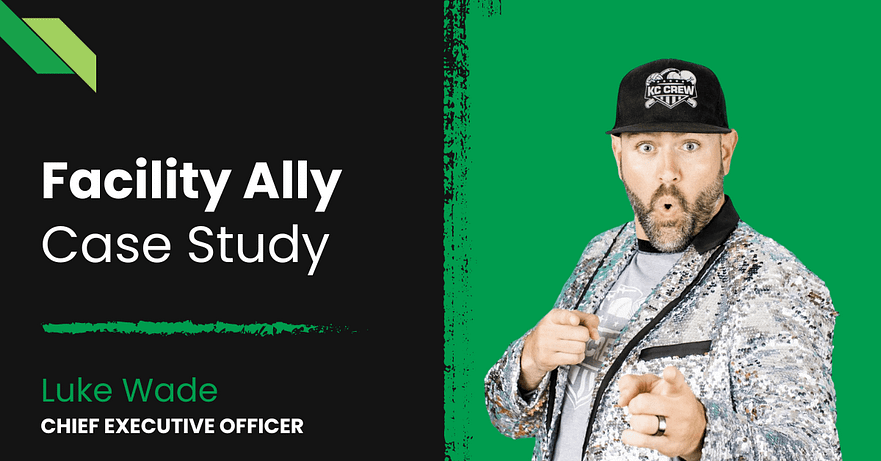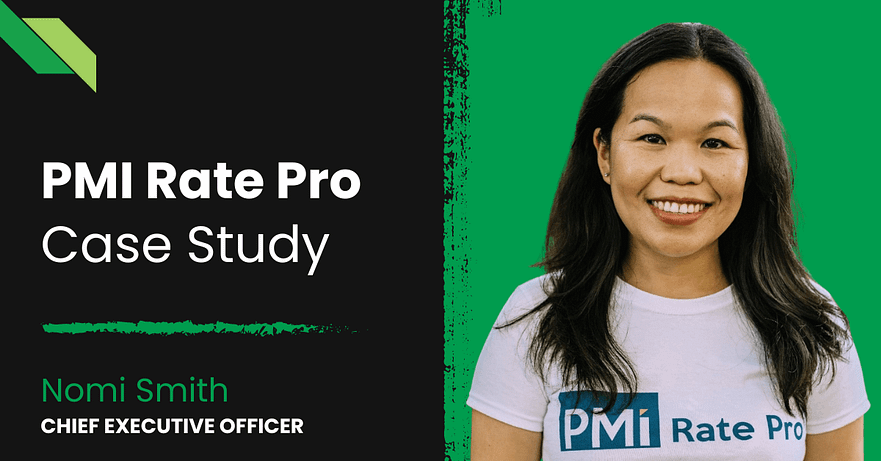Global Developer Workforce Compliance Made Easy (How to Manage International Development Teams)
Companies managing a global developer workforce compliance face unprecedented challenges in 2025.
According to Gartner’s 2024 Global Compliance Study, 73% of organizations with international developers experienced compliance violations last year. The International Association of Privacy Professionals reports average GDPR penalties increased 113% to €15.4M in 2024.
Meanwhile, McKinsey’s Tech Talent Report shows 67% of companies now employ developers across three or more countries.
Smart organizations implement comprehensive global developer workforce compliance frameworks before violations occur. These frameworks encompass employment law, data protection, tax obligations, and intellectual property safeguards.
Proper implementation delivers 60% cost savings while eliminating devastating legal risks.
The Real Cost of Non-Compliance
Understanding compliance costs helps organizations prioritize investments. Financial impacts extend beyond direct penalties. Hidden expenses often exceed initial fines through project delays and reputation damage.
Global Developer Compliance Violation Penalties by Category
Click on any bar to see detailed information about penalties
Immediate Financial Impact
Organizations managing international software development compliance face staggering penalties. GDPR violations reach €20M or 4% of annual revenue. Employment misclassification costs $50K-$500K per developer.
Recent enforcement actions demonstrate these risks:
- Google: €50M GDPR fine (2019)
- Wipro: $35M visa compliance settlement
- Uber: $1.1M contractor misclassification penalty
Tax penalties compound with 20-40% charges plus interest. Offshore development team regulations create additional complexity for US-India corridors. Smart companies implement proactive global developer workforce compliance to avoid these costs.
Hidden Business Costs
Non-compliance creates cascading disruptions beyond direct penalties. When violations force shutdowns, project delays average six months. Client trust erosion costs 23% of annual revenue.
Additional hidden costs include:
- Technical debt: $85K average retrofitting expense
- Lost enterprise deals requiring compliance certification
- Insurance premium increases of 25-40%
- Talent acquisition delays from reputation damage
Five Critical Global Developer Workforce Compliance Areas
Managing global development team legal requirements requires understanding five critical domains. Each area presents unique challenges. Comprehensive frameworks address all simultaneously.
A. Employment Law Compliance
Employment classification tops risk assessments for managing international developer teams’ compliance. Misclassification penalties devastate budgets. Each jurisdiction applies distinct criteria requiring careful navigation.
Key Requirements by Region:
- United States: Form W-8BEN, 20-factor independent contractor test, state-specific laws
- European Union: Local labor laws, collective bargaining agreements, worker protections
- India: GST registration, provident fund contributions, FEMA compliance
- Latin America: Country-specific variations across Mexico, Brazil, Argentina
Organizations must establish clear contractor independence through:
- Jurisdiction-specific contract templates
- Regular classification audits
- Documentation of contractor autonomy
- Avoiding employee-like treatment
B. Data Protection and Security Compliance
Technical teams implementing data protection compliance distributed developers face complex requirements. Regulations vary dramatically between jurisdictions. Security compliance offshore development demands careful architecture planning.
Core Requirements:
- GDPR compliance remote development teams: DPAs, data residency, deletion rights
- CCPA: Consumer data handling, deletion procedures
- Industry-specific: HIPAA (healthcare), SOC 2 (enterprise), PCI DSS (fintech)
Implementation strategies include:
- Automated security scanning in CI/CD pipelines
- Policy-as-code for consistent enforcement
- Regular penetration testing
- Comprehensive audit trails
C. Product Development Compliance
Product managers discover compliance impact product development timeline significantly. Agile compliance global development teams requires integrating checks throughout sprints. Feature limitations vary by market creating roadmap complexity.
Key Considerations:
- EU cookie consent differs from Chinese localization
- Sprint planning needs compliance checkpoints
- Definition of Done includes compliance criteria
- 15% timeline extension for proper integration
Successful international team collaboration compliance establishes:
- Product-Legal-Engineering alignment frameworks
- Early compliance reviews in planning
- Cross-functional communication protocols
- Automated compliance testing
D. Intellectual Property Protection
Intellectual property protection offshore requires multi-layered approaches. Work-for-hire agreements vary between jurisdictions. Global developer workforce compliance must address IP ownership clearly.
Protection Strategies:
- Jurisdiction-appropriate assignment clauses
- Repository access controls and audit trails
- NDA enforcement across all contractors
- Open source compliance scanning
Organizations implement:
- Automated IP violation detection
- Clear usage policies
- Regular training programs
- Quarterly IP audits
E. Tax and Financial Compliance
CFOs managing tax implications for international contractors navigate complex requirements. The cost of compliance global development includes hidden expenses. Budget planning requires comprehensive understanding.
Financial Considerations:
- Withholding varies by country and treaty
- Permanent establishment risks
- Transfer pricing regulations
- 12-18% budget increase for compliance
Smart teams implement:
- Automated withholding calculations
- Regular tax optimization reviews
- Proactive planning processes
- Comprehensive documentation
Stakeholder Alignment for Global Developer Workforce Compliance
Successful implementation requires cross-department coordination. Each stakeholder group needs tailored messaging. Unified vision ensures program success.
Global Developer Workforce Compliance: 90-Day Implementation
Transform your global team compliance in just 12 weeks
- Location audit
- Gap analysis
- Prioritization
- Risk mapping
- Contracts
- Policies
- Procedures
- Templates
- Training
- Workflows
- Monitoring
- Automation
- Reviews
- Updates
- Audits
- Optimization
Getting Cross-Department Buy-In
Technical Leaders (CTOs): Frame technical compliance requirements for global teams as architecture decisions. Emphasize security benefits and audit readiness. Position as an engineering excellence initiative.
Product Managers: Present product delivery compliance requirements as competitive advantages. Show faster time-to-market through early integration. Demonstrate enterprise sales enablement.
Financial Executives: Provide ROI compliance management offshore teams analysis. Frame compliance budget planning for international developers as risk mitigation. Show financial risks non-compliance global workforce prevention.
HR Directors: Position hiring compliance international software developers as talent enabler. Demonstrate employment law international developers simplification. Show improved satisfaction through proper contractor classification global workforce.
Communication Protocols
Effective global developer workforce compliance requires structured communication:
- Monthly steering committee meetings
- Quarterly board compliance updates
- Real-time dashboards for all stakeholders
- Clear escalation procedures
Implementation Roadmap
Organizations achieve global developer workforce compliance through phased approaches. Systematic implementation ensures sustainable results. Quick wins build momentum for comprehensive programs.
Phase 1: Risk Assessment (Week 1-2)
Initial assessment establishes a baseline understanding. Teams evaluate current compliance gaps. Prioritization focuses resources effectively.
Key Activities:
- Developer location and status audit
- Regulatory landscape analysis
- Gap identification and scoring
- Quick win opportunities
Phase 2: Documentation (Week 3-4)
Comprehensive documentation prevents future violations. Templates accelerate consistent implementation. Legal review ensures enforceability.
Essential Documents:
- Jurisdiction-specific contracts
- Data handling policies
- Compliance procedures
- Audit trail systems
Phase 3: Team Integration (Week 5-8)
Successful global developer workforce compliance requires workflow integration. Teams embrace well-designed processes. Automation reduces friction while ensuring consistency.
Integration Steps:
- Developer onboarding updates
- Workflow checkpoint implementation
- Monitoring system deployment
- Performance tracking setup
Phase 4: Ongoing Management (Week 9+)
Sustainable compliance demands continuous improvement. Regular reviews catch emerging issues. Proactive updates prevent violations.
Maintenance Activities:
- Monthly compliance reviews
- Regulatory change monitoring
- Process optimization
- Stakeholder feedback integration
Technology Solutions
Modern compliance automation global development teams leverage specialized platforms. Tool selection significantly impacts program success. Integration capabilities determine long-term effectiveness.
Comprehensive Platform Comparison
| Category | Platform | Key Features | Best For | Pricing | Integrations |
| HR Compliance | Deel | Contractor classification, global workforce management compliance | Startups | $49/contractor | Slack, QuickBooks |
| Remote | Employment management, benefits | Remote first company compliance requirements | $599/employee | HRIS, Slack | |
| Rippling | Unified HR/IT/Finance | Mid-size companies | $8/user | 500+ tools | |
| Security | Vanta | SOC 2 automation, monitoring | Data protection compliance | $300/month | AWS, GitHub |
| OneTrust | Privacy management, GDPR | Enterprise | Custom | Salesforce, SAP | |
| Financial | Avalara | Tax automation, withholding | International remote work compliance | $30/filing | NetSuite, QBO |
| Thomson Reuters | Transfer pricing, reporting | Enterprises | Custom | Oracle, SAP |
Integration Strategies
Successful offshore outsourcing compliance requirements demand seamless tool integration:
- API-first platform selection
- Automated data synchronization
- Single source of truth establishment
- Real-time compliance monitoring
ROI Analysis
Financial justification accelerates global developer workforce compliance adoption. Clear metrics demonstrate value. Stakeholder buy-in follows proven returns.
Investment Breakdown
Initial Costs
- Setup: €15K-€50K
- Monthly operations: €5K-€15K
- Annual training: €10K-€25K
- Total Year 1: €85K-€245K
Return Metrics
Risk Mitigation Value
- Avoided penalties: €500K-€5M
- Market entry acceleration: 30%
- Enterprise win rate increase: 40%
- Insurance savings: 15-25%
Industry-Specific Returns
| Industry | Compliance Focus | Investment | Payback | Primary Driver |
| FinTech | Fintech development compliance requirements | €150K-€300K | 18 months | Regulatory penalties |
| HealthTech | Healthcare software international compliance | €200K-€400K | 24 months | HIPAA enablement |
| Enterprise SaaS | Enterprise software global team regulations | €100K-€200K | 12 months | SOC 2 requirements |
| Startups | Startup compliance offshore development | €75K-€150K | 15 months | Growth enablement |
Country-Specific Compliance Guide
Understanding regional requirements prevents costly mistakes. Each jurisdiction presents unique challenges. Targeted approaches ensure global developer workforce compliance success.
Major Development Hubs
United States Requirements
- Form W-8BEN for all foreign contractors
- 20-factor test compliance
- State-specific laws (California AB5)
- ITAR for defense projects
European Union Mandates
- EU software development regulations include GDPR
- Data residency requirements for development teams
- Country-specific labor laws
- Cookie consent implementations
India Specifications
- GST registration requirements
- US-India development team compliance considerations
- FEMA regulations
- STPI benefits optimization
Latin America Variations
- Latin America developer workforce compliance differs by country
- Mexico: Recent labor reforms
- Brazil: Complex CLT requirements
- Argentina: Currency controls
Eastern Europe Considerations
- Eastern Europe development team legal requirements
- Favorable tax treaties
- EU data protection alignment
- Skilled developer availability
Philippines and Southeast Asia Specifications
- Philippine Offshore Leasing Act (POLA) benefits for IT-BPM sector
- Data Privacy Act of 2012 alignment with GDPR principles
- PEZA (Philippine Economic Zone Authority) incentives for compliant companies
- Simplified visa processes for foreign technical consultants
- English proficiency eliminates language compliance barriers
Southeast Asia Regional Variations
- Singapore: Stringent Personal Data Protection Act (PDPA), favorable tax treaties
- Vietnam: Labour Code 2019 requirements, technology transfer regulations
- Thailand: Personal Data Protection Act (PDPA) enforcement, BOI incentives
- Malaysia: Personal Data Protection Act 2010, MSC Malaysia benefits
- Regional free trade agreements simplifying multi-country operations
Regional Pitfall Patterns
Common mistakes repeat across regions:
- US-India: Contractor classification confusion
- US-EU: Data transfer mechanism failures
- Global: Holiday and cultural compliance gaps
- Multi-region: Inconsistent documentation
Common Pitfalls and Solutions
Organizations repeatedly encounter similar global developer compliance mistakes to avoid. Pattern recognition prevents violations. Proactive measures ensure smooth operations.
Critical Implementation Errors
Top Five Mistakes to Avoid
- One-size-fits-all approaches: Each country needs specific frameworks
- Cultural blindness: Ignoring holidays, work hours, and religious considerations
- Documentation gaps: Incomplete audit trails invite violations
- Delayed implementation: Costs triple when retroactive
- Audit unpreparedness: 67% fail first compliance review
Persona-Specific Quick Wins
Technical Leaders (CTOs/VPs of Engineering)
- Deploy automated compliance scanning in CI/CD pipelines within 24 hours
- Implement pre-commit hooks checking for security vulnerabilities and license compliance
- Set up weekly security audit reports integrated with existing DevOps dashboards
- Create compliance scorecards visible in team standups for immediate accountability
- Establish “compliance champions” in each development squad for peer reviews
Product Managers (Heads of Product/Directors)
- Add compliance checkpoints to existing sprint planning templates today
- Create user story tags for compliance requirements (GDPR, HIPAA, SOC2)
- Build compliance acceptance criteria into the Definition of Done immediately
- Schedule monthly Product-Legal sync meetings starting this week
- Develop a feature flag system for region-specific compliance requirements
Financial Executives (CFOs/Finance Directors)
- Start with the highest-risk, lowest-cost compliance areas for immediate ROI
- Implement automated invoice scanning for contractor classification red flags
- Create a monthly compliance cost tracking dashboard within existing financial systems
- Negotiate compliance insurance policies leveraging initial assessment results
- Establish quarterly board reporting templates highlighting risk mitigation value
HR Directors (Talent Acquisition Managers)
- Deploy a templated onboarding with built-in compliance training modules
- Create automated contractor classification questionnaires for all new hires
- Implement a 48-hour contract generation system using pre-approved templates
- Set up quarterly classification audits with automated reminders
- Build compliance verification into background check processes
- Establish “golden visa” tracking for key international team members
Red Flag Indicators
Immediate action is required when discovering:
- Developers without signed contracts
- Data in non-compliant locations
- Missing code change audit trails
- Absent tax withholding processes
Transform Your Global Development Today
Managing a global developer workforce in compliance delivers competitive advantages beyond risk mitigation. Full Scale specializes in building compliant offshore teams. Our frameworks handle employment classification, data protection, and tax compliance seamlessly.
Full Scale’s Comprehensive Solution:
- Pre-vetted developers with proper classification
- Built-in compliance management systems
- Ongoing regulatory monitoring
- 95% violation prevention rate
- 60% cost reduction versus in-house teams
Stop risking penalties with non-compliant teams. Full Scale’s startup global developer compliance guide, through the enterprise software global team regulations, covers all needs. Our small business international development compliance solutions scale with growth.
Get A Free Global Workforce Compliance Assessment
FAQs: Global Developer Workforce Compliance
How long does global developer workforce compliance implementation take?
Basic global developer workforce compliance setup requires 4-8 weeks. Full implementation spans 3-6 months depending on team size. Quick wins emerge within 30 days through updated contracts.
What’s the biggest compliance risk for offshore teams?
Employment misclassification presents highest financial exposure. Penalties average $50K-$500K per developer. Data protection violations follow with GDPR fines reaching €20M.
How much should companies budget for global developer compliance?
Budget 8-12% of offshore development costs for global developer workforce compliance. Ten-developer teams need $25K-$75K annually. Initial setup requires higher investment with reduced ongoing expenses.
Can organizations handle compliance internally?
Basic scenarios allow internal management using templates. Complex multi-jurisdiction global developer workforce compliance requires legal expertise. Budget $10K-$25K for professional setup.
What are non-compliance consequences?
Financial risks non-compliance global workforce include penalties from $50K to €20M. Project shutdowns disrupt operations. Client violations trigger additional lawsuits. Market restrictions prevent future opportunities.
Which countries offer the easiest developer compliance?
Countries with established IT frameworks simplify global developer workforce compliance. India, Philippines, and Estonia provide clear regulations. Avoid complex labor law jurisdictions initially.



